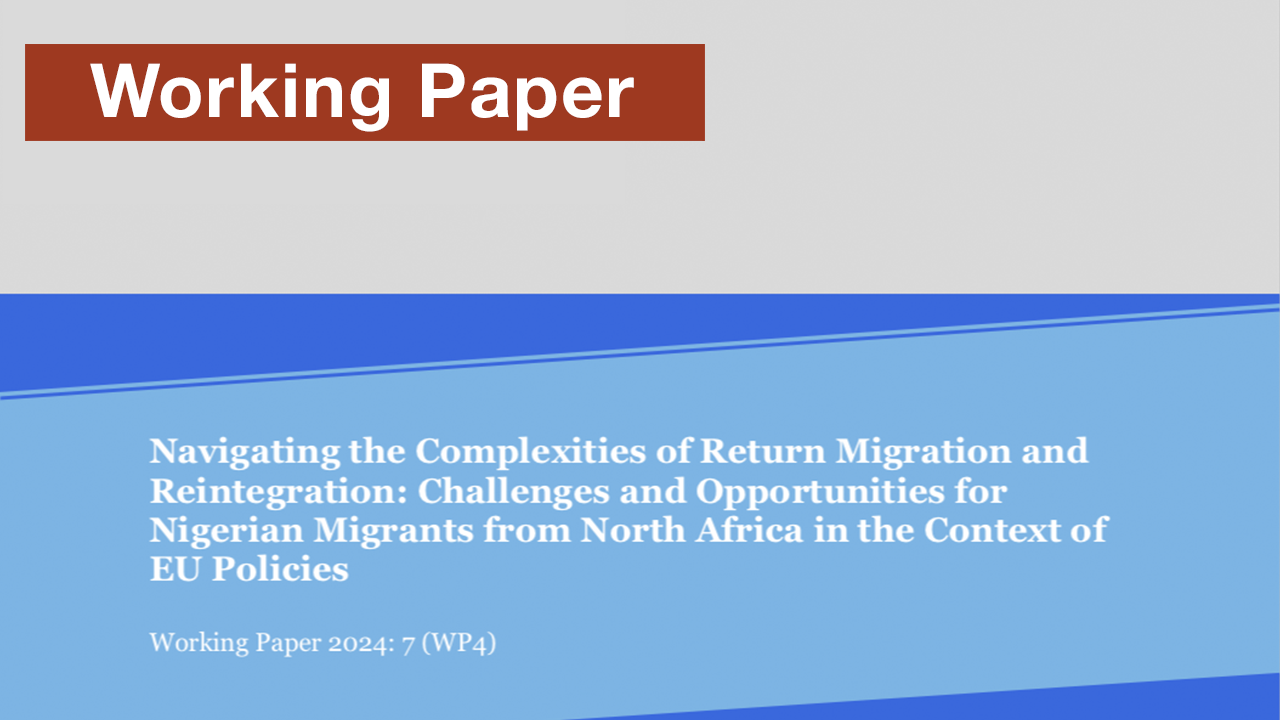Navigating the Complexities of Return Migration and Reintegration: Challenges and Opportunities for Nigerian Migrants from North Africa in the Context of EU Policies
Authors:
Ngozi Louis Uzomah, University of Nigeria | Ignatius Ani Madu, University of Nigeria | Chukwuedozie K. Ajaero, University of Nigeria | Eberechukwu J. Ezea, University of Nigeria
Executive Summary:
Nigeria is a major source of asylum seekers to Europe. Yet, the EU perceive Nigeria as a safe origin country resulting in low acceptance rate of Nigerian asylum seekers and the return of Nigerian migrants many of whom travel through North Africa to reach the EU. North African countries also align with the EU policy to return Nigerian migrants leading to complex reintegration processes. This study examines the return trajectories of Nigerian migrants, focusing on returnee experiences and the effectiveness of reintegration strategies with European and North African migration policies. Through semi-structured interviews with stakeholders and focus group discussions with return migrants from different parts of Nigeria, the study uncovers the dynamics and obstacles in the return and reintegration process. It reveals that even with the provision of EU-sponsored Assisted Voluntary Return and Reintegration (AVRR) in Nigeria, significant reintegration challenges exist including inadequate funding, lack of capacity and coordination issues among government agencies and civil society organisations. Many returnees reported feeling unprepared to return, alongside the incoherent strategies employed by North African countries of Tunisa, Morocco and Libya in collaboration with the EU, IOM and other organisations, which negatively impact their reintegration process. The harsh socioeconomic conditions and poor governance in Nigeria complicate their economic reintegration, while stigmatisation from the community members add to the difficulties in social and psychosocial reinsertion into the society. Through the lens of concept of sustainable reintegration, the study provides insights into how migration policies impact returnees and the structural gaps in the approaches.
Please find the entire DOI report by clicking the button below:

